Messy spaces aren’t just an eyesore—they might be messing with your mind.

Walking into a cluttered room can feel unsettling, and there’s a scientific reason why. Studies show that visual chaos triggers stress, increases cortisol levels, and makes it harder to focus or relax. When surroundings feel out of control, the brain struggles to find calm. The most disruptive clutter isn’t always obvious, but its impact can quietly build up over time.
Overflowing kitchen counters, overstuffed closets, and that dreaded junk drawer all create mental noise, making it harder to unwind. Clutter builds up without notice, but its effects are hard to ignore—restlessness, distraction, and that constant feeling of never being fully at ease. The environment around you shapes your mood, productivity, and overall sense of well-being. Once cluttered spaces become clear, so does the mind. Here are 10 common clutter zones that could be silently sabotaging peace of mind—and simple ways to take back control.
1. A cluttered entryway can raise stress levels before you even step inside.
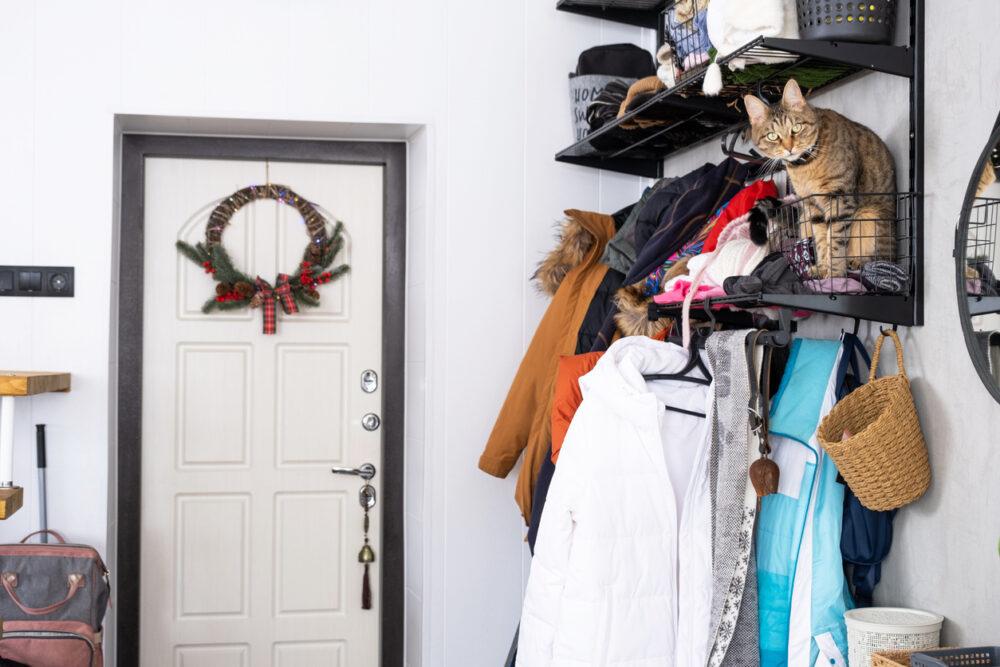
If the first thing you see when you walk in is piles of shoes, scattered mail, and random items, your stress levels might spike before you even set your keys down. A cluttered entryway creates a sense of disorganization, making it harder to mentally transition from the outside world to the comfort of your home.
Michael Blanding for Princeton Alumni Weekly suggests that visual clutter competes for attention, leading to cognitive overload and increased stress. Simplify this space with a small basket for keys, a dedicated shoe rack, and a drop zone for mail that gets sorted weekly. A clean, organized entryway sends an instant signal to your brain that home is a place of calm, not chaos.
2. Cluttered kitchen counters can make your entire home feel chaotic.
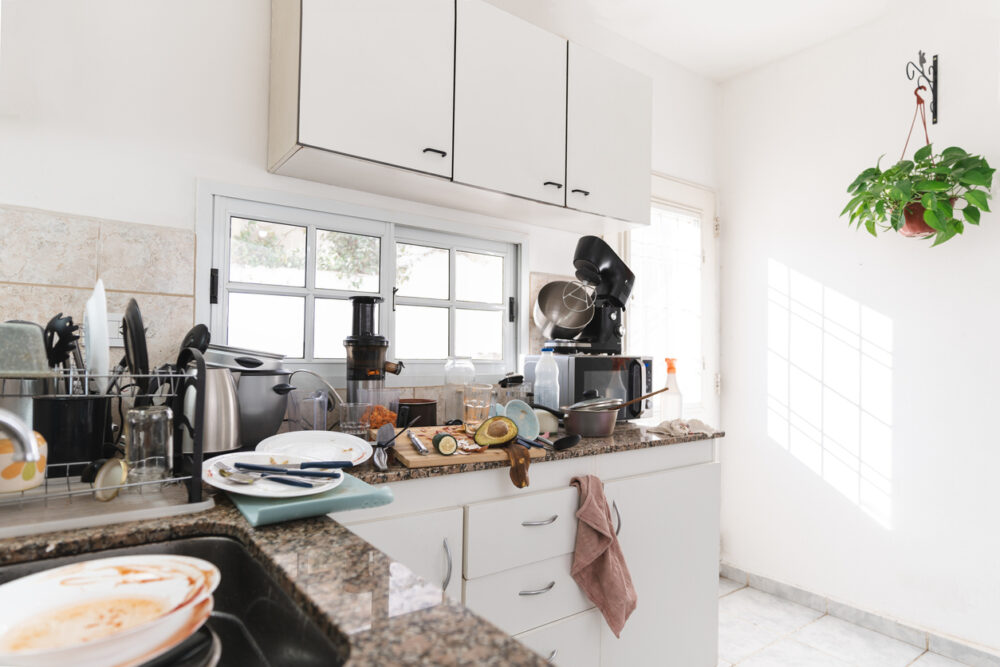
A cluttered kitchen isn’t just visually stressful—it can also make cooking feel overwhelming. Piles of unopened mail, dirty dishes, and random appliances crowding your counters create a sense of unfinished business. A study conducted by UCLA’s Center on Everyday Lives and Families (CELF) found that women who described their homes as cluttered had higher levels of cortisol, a stress hormone linked to anxiety.
Keeping just a few essentials on the counter—like a coffee maker and a fruit bowl—can clear mental and physical space while making meal prep feel more inviting. A quick daily wipe-down and declutter routine can help turn your kitchen into a stress-free zone.
3. An overstuffed closet can add to decision fatigue and daily stress.
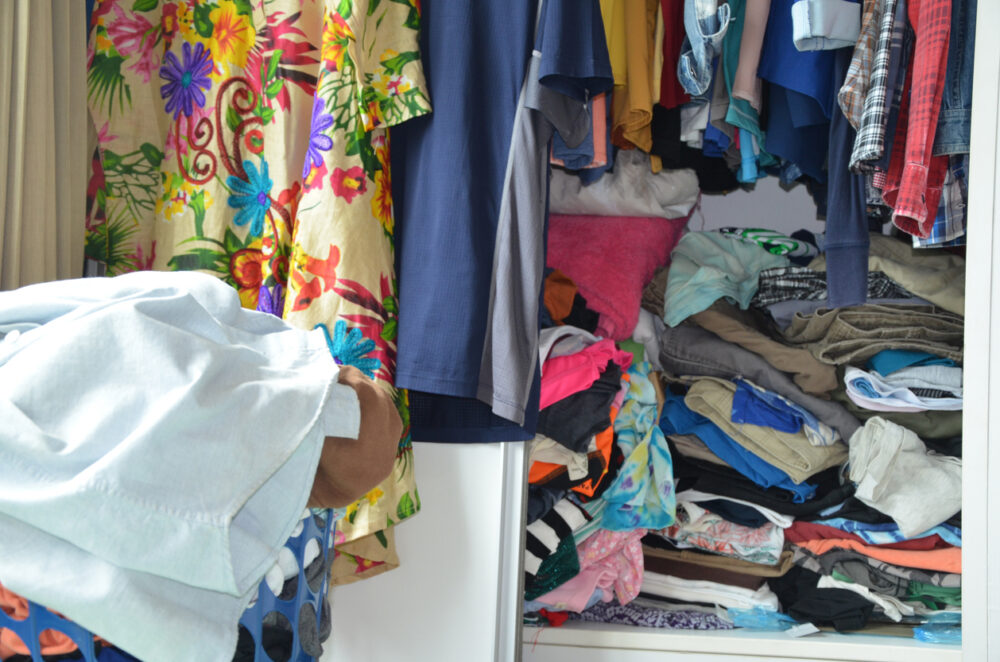
If opening your closet door means dodging falling clothes or digging through piles of things you don’t wear, it’s probably causing more stress than you realize. Decision fatigue kicks in when you have too many options, making it harder to get dressed in the morning.
According to Amanda Lauren at Real Simple, owning too many duplicates, such as multiple black t-shirts, suggests the need for re-evaluation and organization. Try the one-year rule—if you haven’t worn it in the last year, consider donating or repurposing it. Organizing by category and using matching hangers can make your closet feel less like a battle zone and more like a boutique.
4. A junk drawer overflowing with random items can create hidden stress.
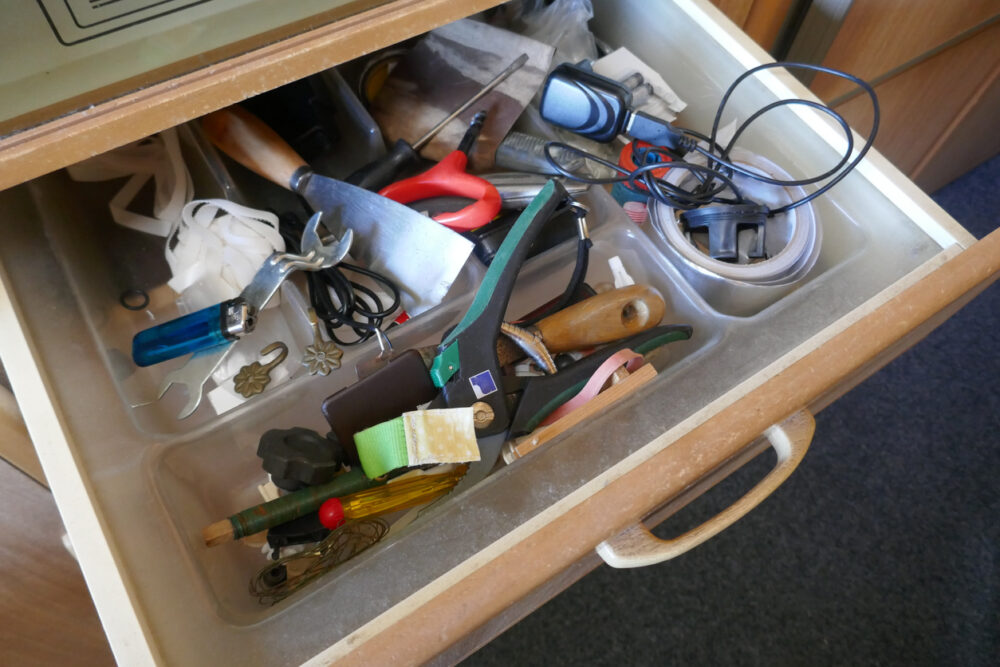
We all have that one drawer filled with mystery cables, expired coupons, pens that don’t work, and other miscellaneous items we swear we’ll use someday. But every time you open it, it’s just a reminder of disorder.
Instead of letting it build up, dump everything out and sort into three categories: keep, relocate, or toss. Drawer dividers can help make sure what stays is actually useful.
A clutter-free drawer means no more digging through chaos when you just need a pair of scissors. Keeping it minimal helps create a sense of order in your home, giving you one less mess to stress over.
5. A cluttered nightstand can make it harder to wind down at night.
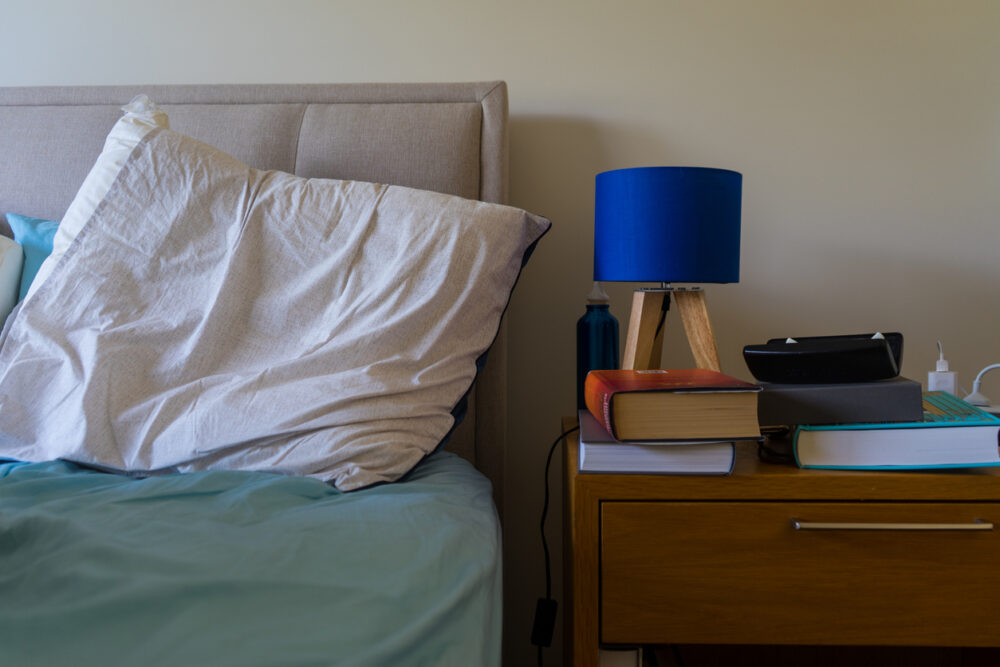
Your nightstand should be a place of calm, but if it’s stacked with books you aren’t reading, old receipts, and half-empty water bottles, it might be contributing to restless nights. Clutter in your sleep space can make it harder to wind down, signaling to your brain that there’s still unfinished business.
Research suggests that a messy bedroom can interfere with sleep quality by increasing stress and distractions before bed. Stick to the essentials: a lamp, a book, and a glass of water. Keeping your nightstand minimal helps create a more restful environment that supports better sleep. Try adding a small tray to corral items and keep surfaces clear for a visually soothing space.
6. An overcrowded bathroom counter can make mornings feel overwhelming.
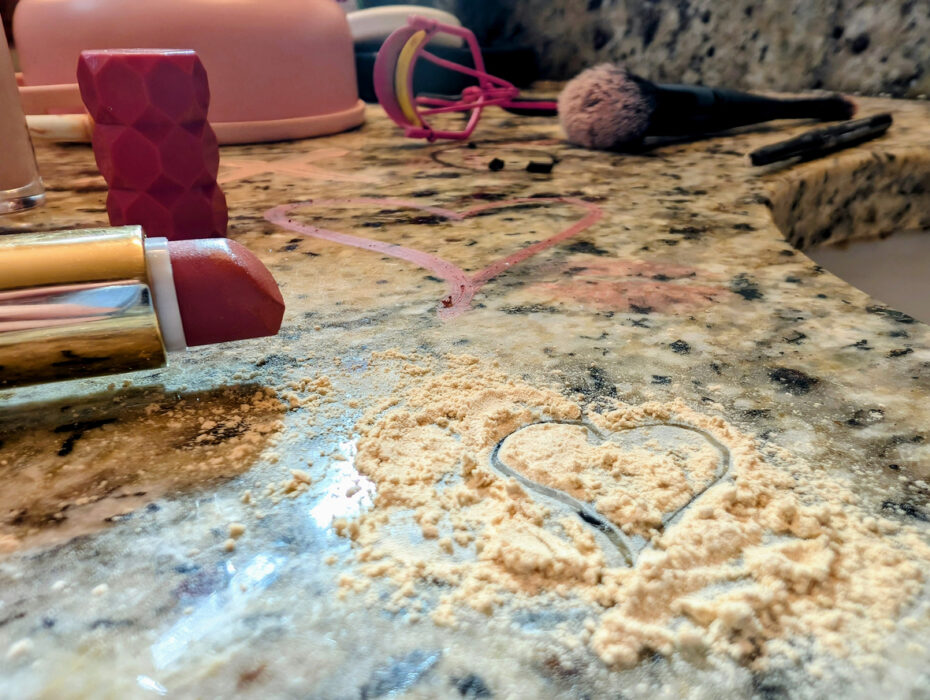
If your bathroom counter is covered in half-used products, tangled hair tools, and expired skincare, your morning routine might feel more stressful than refreshing. A cluttered bathroom contributes to decision fatigue, making it harder to start the day with a clear mind.
Studies show that physical clutter can increase stress hormones, adding unnecessary tension to an already busy morning. Clearing out expired products and storing daily essentials in a small tray or drawer organizers can make a big difference. Limiting what stays on the counter to just a few frequently used items helps create a calmer, more efficient space where you can actually enjoy your morning routine.
7. Bookshelves packed with clutter can make your space feel mentally exhausting.
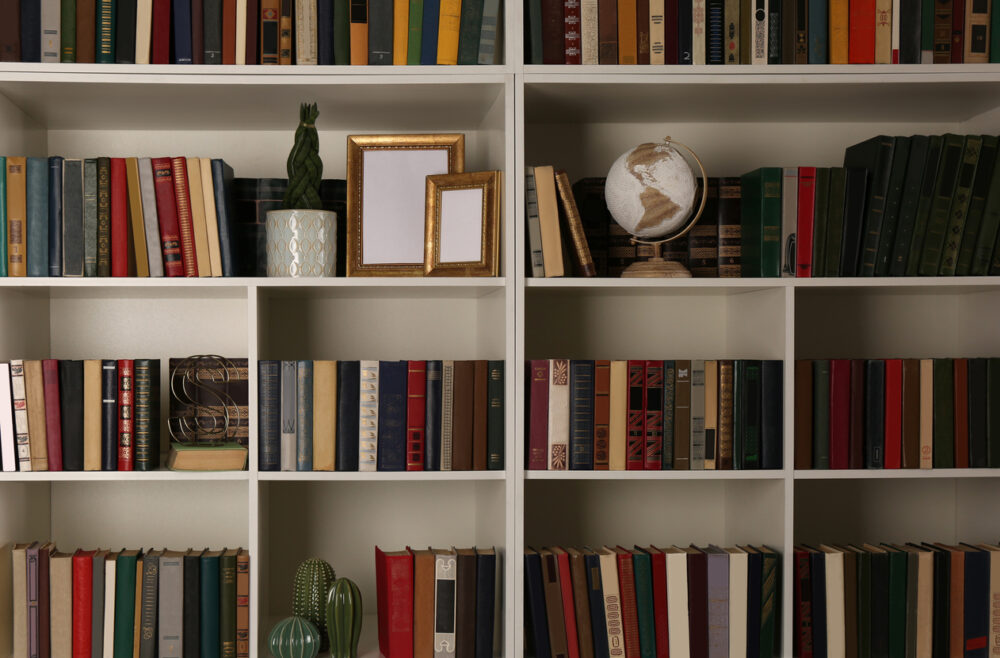
A packed bookshelf might look cozy, but too much visual clutter can be mentally overwhelming. Studies suggest that cluttered spaces can increase cortisol levels, leading to heightened stress and decreased focus. If your shelves are overflowing with books you’ll never read or random décor that collects dust, they might be subtly contributing to your mental fatigue.
Start by going through your collection and donating books you’re unlikely to read again. Be intentional about how you arrange your shelves—leave some breathing room between books, incorporate a small plant, or add a decorative element that brings you joy. Open space makes a bookshelf feel curated rather than chaotic, transforming it from a cluttered storage unit into a peaceful, inspiring corner of your home. A well-organized shelf isn’t just visually appealing; it can also encourage a sense of calm and make your space feel lighter and more inviting.
8. Stacks of paperwork can be a constant reminder of unfinished tasks.

Stacks of unsorted mail, old bills, and random paperwork can easily become a lingering source of stress. Seeing that growing pile every day sends a subconscious reminder that you have unfinished tasks waiting for you, adding to mental clutter. Even if you don’t actively think about it, the presence of disorganized paperwork can create low-grade anxiety and a sense of being overwhelmed.
A simple filing system—folders for bills, important documents, and things to shred—can help keep paper clutter under control. Setting aside just five minutes each week to sort, file, and discard unnecessary papers can make a huge difference in reducing stress.
Going digital when possible, such as opting for paperless billing or scanning important documents, can also prevent paper from piling up in the first place. Keeping surfaces clear not only makes your space feel lighter but also improves focus and productivity.
9. Using a chair as a laundry storage spot can add unnecessary clutter.
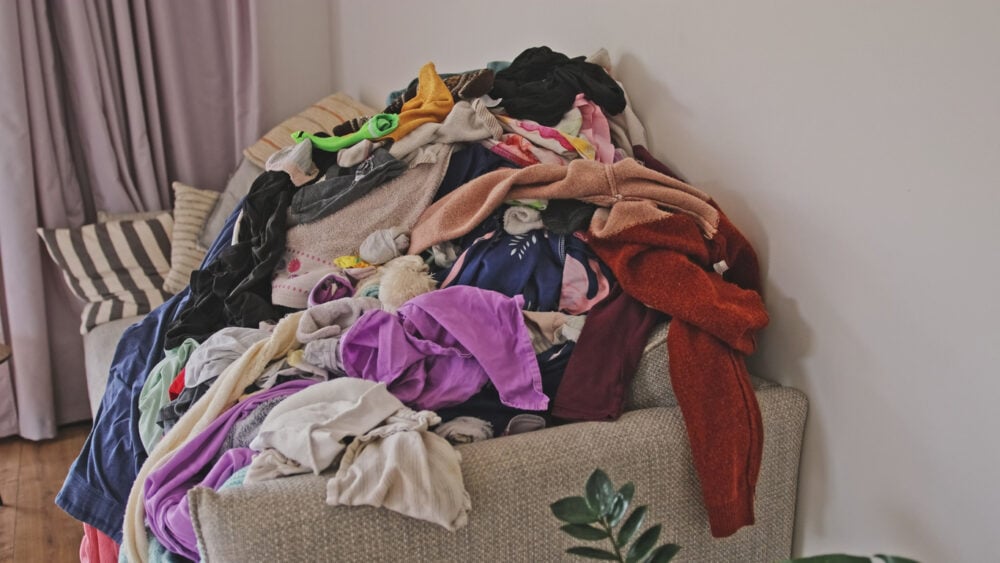
You know the one—the chair that’s supposed to be for sitting but is actually buried under a never-ending rotation of clean and dirty clothes. When laundry piles up, it can make your entire bedroom feel chaotic, even if everything else is tidy. The trick is making laundry part of your routine instead of an afterthought.
Folding clothes as soon as they come out of the dryer (or off the drying rack) and putting them away immediately helps prevent buildup. Your chair—and your mind—will feel so much lighter.
10. Temporary storage spaces can quickly turn into permanent clutter zones.

Maybe it’s the garage, the basement, or even a corner of a room—a spot where things get tossed with the intention of dealing with them later. Over time, this space can turn into an overwhelming black hole of clutter that weighs on you every time you see it.
The best way to tackle it? Break it down into small, manageable tasks. Set a 15-minute timer and clear just one section. Keep what you need, donate what you don’t, and finally deal with that pile of “someday” items. Creating a functional, intentional space instead of a storage dump can lift a huge mental burden.